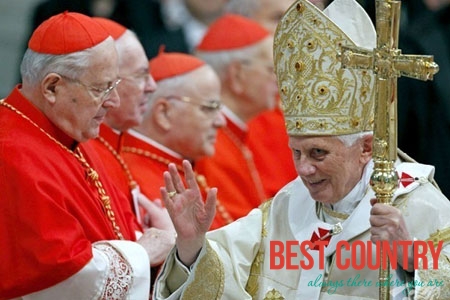Religion in Italy

The Constitution provides for freedom of religion, and the government is thought to generally respect this right in practice, not tolerating its abuse, either by government or private action.
Thus, there is no state religion and the constitution prohibits state support for private schools but the Catholic Church enjoys some privileges, stemming from its sovereign status and its historical political authority, not available to other faiths.
The Church is allowed to select Catholic teachers, paid by the State, to provide instruction in "hour of religion" courses taught in the public schools although this class is optional, and students who do not wish to attend are free to study other subjects.
While in the past this instruction involved Catholic priests teaching Catechism, church-selected instructors now may be either lay or religious, and their instruction should include material relevant to non-Catholic faiths. Problems may arise in small communities where information about other faiths and numbers of non-Catholic communicants are limited.
The status of the Roman Catholic Church in Italy has been determined (since its temporal powers ended in 1870) by a series of accords with the Italian government.
The Lateran Pacts of 1929, which were confirmed by the present Constitution, confirms that the State of Vatican City is recognised by Italy as an independent, sovereign entity.
While preserving that recognition, in 1984 Italy and the Vatican updated several provisions of the 1929 Pacts, which included the end of Roman Catholicism as Italy's formal state religion.
While most of the population is Roman Catholic there are also significant minorities, which include Protestants and Jews, although the Jehovah's Witnesses form the second largest denomination among native-born citizens, numbering approximately 400,000.
Increasing immigration has led to some anti-immigrant sentiment to be directed towards the country's many Muslim immigrants as religion has served as an additional factor differentiating them from native-born citizens.
Immigration, both legal and illegal, continues to add large groups of non-Christian residents, mainly Muslims from North Africa, South Asia, Albania, and the Middle East, who number an estimated one million.
Buddhists number some 40,000 of European origin and 20,000 of Asian origin.
Scientologists claim to have approximately 100,000 members, Waldensians estimate approximately 30,000 members (concentrated mainly in the north-west), and the Church of Jesus Christ of Latter-day Saints (Mormons) has approximately 20,000 members.
A Jewish community of approximately 30,000 persons maintains synagogues in 21 cities.
Other significant religious communities include Orthodox churches, small Protestant groups, Japanese Buddhists, the Baha'i Faith, and South Asian Hindus.
Recent polls show that approximately 14% of the population consider themselves to be either atheists or agnostics.
The generally good relations among religions has contributed to religious freedom although the influential role played by the Catholic Church in Italian society has led to controversy when church teachings have appeared to influence Catholic legislators on matters of public policy.